Aechmea chantinii 'Large' - Brom312b
Aechmea chantinii 'Large' - Brom312b
Aechmea chantinii, commonly known as the Amazonian zebra plant, is a striking species from the bromeliad family (Bromeliaceae), often grown as an ornamental plant. With its unique leaf pattern and exotic appearance, it’s a true eye-catcher in any plant collection. Native to the Amazon Rainforest, this plant is found in countries such as Brazil, Venezuela, Colombia, Ecuador, and Peru.Aechmea chantinii is a spectacular tropical plant that transforms any space into a slice of ...
the Amazon with its zebra-like foliage and vibrant bloom. It’s relatively low-maintenance if you provide the right amount of light, warmth, and humidity. For those who love bold plants with character, this bromeliad is a stunning addition to the collection—suitable for both advanced growers and curious beginners.
This product is currently still in stock
Share this plant? Press on one of the following icons.
What sets Aechmea chantinii apart from other bromeliads is its spectacular foliage. The leaves are sturdy, arching, and often feature silvery white horizontal stripes against a dark green to purplish background—hence the nickname "zebra plant." The rosette-shaped plant can grow quite large, with leaves reaching up to 60 cm in length. Eventually, it produces an impressive flower spike from its center: an upright inflorescence with brightly colored bracts (typically red to orange) and flowers in shades of yellow and purple. Like many other bromeliads, Aechmea chantinii grows as an epiphyte in its natural habitat, often high up in trees where it collects rainwater and organic debris in its central tank. However, it also adapts well to life in a pot, as long as its growing needs are met. The symbols below will give you some indications for this plant. We are working hard on adding valuable information as soon as possible.
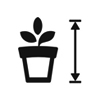
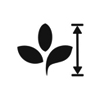
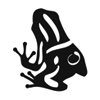
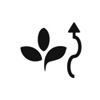
Although Aechmea chantinii is relatively easy to care for, it does require a few specific conditions to truly thrive—especially if you want to enjoy its full ornamental potential and possibly see it bloom. Light and Temperature This bromeliad prefers bright, indirect light. Direct sunlight can scorch the leaves, while too little light may cause dull coloration and slow growth. A spot near an east- or west-facing window is ideal. The plant enjoys warmth and humidity, consistent with its tropical origins. Temperatures between 18 and 27 °C (65–80 °F) are optimal; avoid cold drafts. Water and Humidity A unique feature of this plant is its central "tank"—the water-holding rosette formed by the overlapping leaves. This should always be kept filled with clean water, preferably rain or filtered water. Refresh the water regularly to prevent stagnation or bacterial growth. Additionally, the soil should be kept lightly moist, but not soggy, with good drainage. High humidity (above 50%) encourages healthy growth. In dry indoor environments, using a humidifier or placing a water tray nearby can help maintain moisture levels. Substrate Use a light, well-draining potting mix, such as a combination of orchid bark, tree fern fiber, and coconut husk. This mimics the plant’s natural epiphytic environment, where roots are mainly for anchoring, not water absorption. Bloom and Life Cycle Aechmea chantinii blooms only once in its lifetime, but it’s well worth the wait: the inflorescence can remain attractive for several months. After flowering, the mother plant gradually dies back but produces "pups"—offsets at the base that can be separated and potted to continue the cycle. The plantcare symbols below will give you anadditional information about this spectaculair Bromeliad.
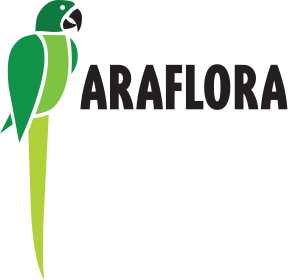


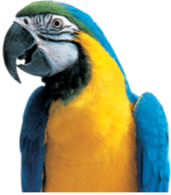
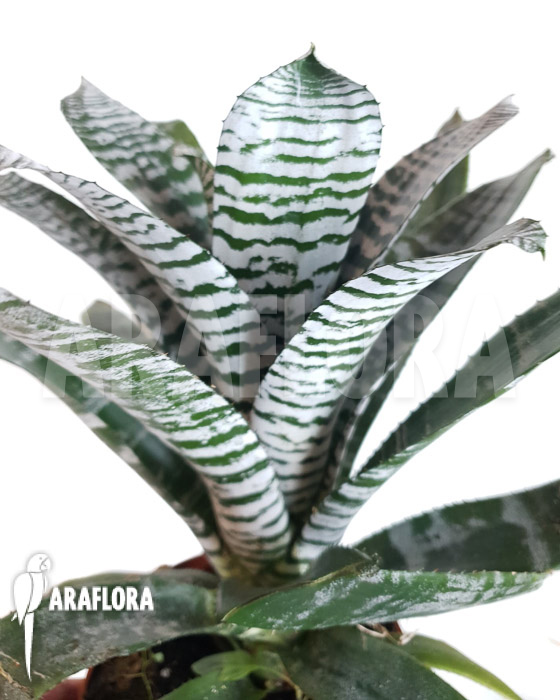
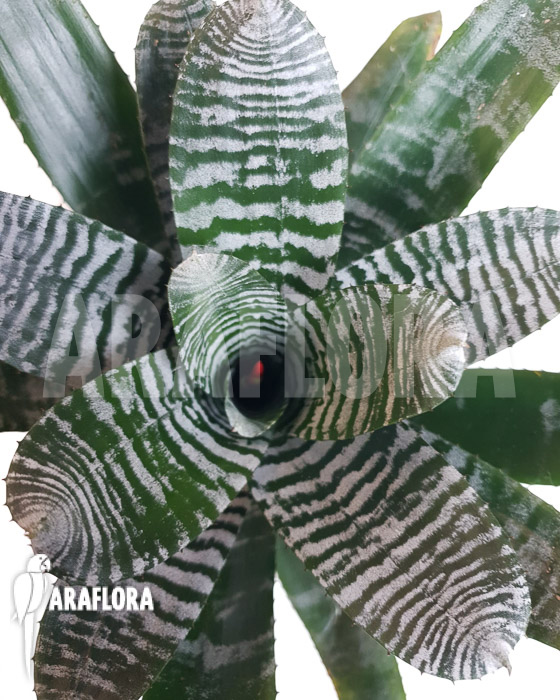
 10 cm
10 cm
 6 cm
6 cm












